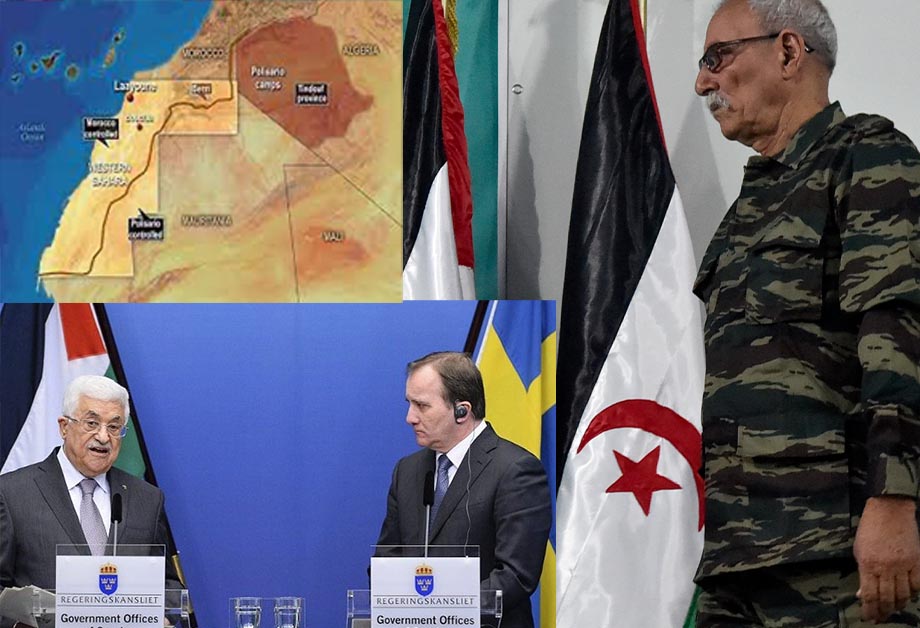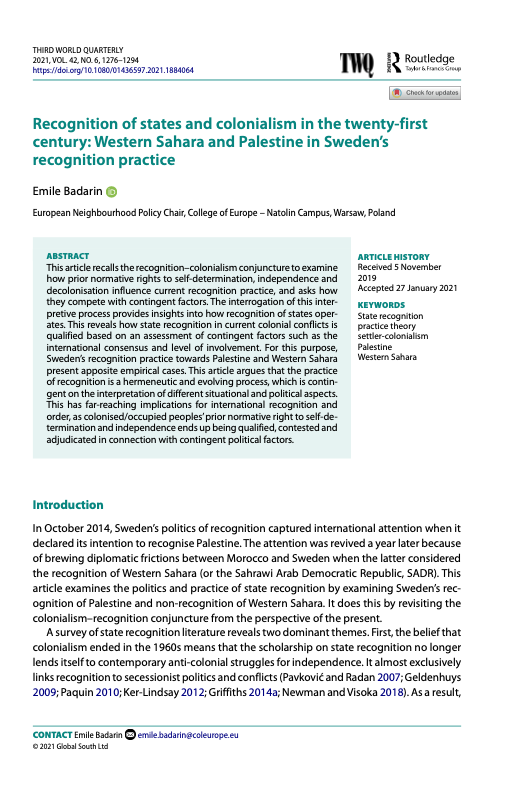This article recalls the recognition–colonialism conjuncture to examine how prior normative rights to self-determination, independence and decolonisation influence current recognition practice, and asks how they compete with contingent factors. The interrogation of this inter- pretive process provides insights into how recognition of states oper- ates. This reveals how state recognition in current colonial conflicts is qualified based on an assessment of contingent factors such as the international consensus and level of involvement. For this purpose, Sweden’s recognition practice towards Palestine and Western Sahara present apposite empirical cases.
This article argues that the practice of recognition is a hermeneutic and evolving process, which is contin- gent on the interpretation of different situational and political aspects. This has far-reaching implications for international recognition and order, as colonised/occupied peoples’ prior normative right to self-de- termination and independence ends up being qualified, contested and adjudicated in connection with contingent political factors.

Cite as: Badarin, Emile 2021. “Recognition of states and colonialism in the twenty-first century: Western Sahara and Palestine in Sweden’s recognition practice.” Third World Quarterly 42.6: 1276-1294.
